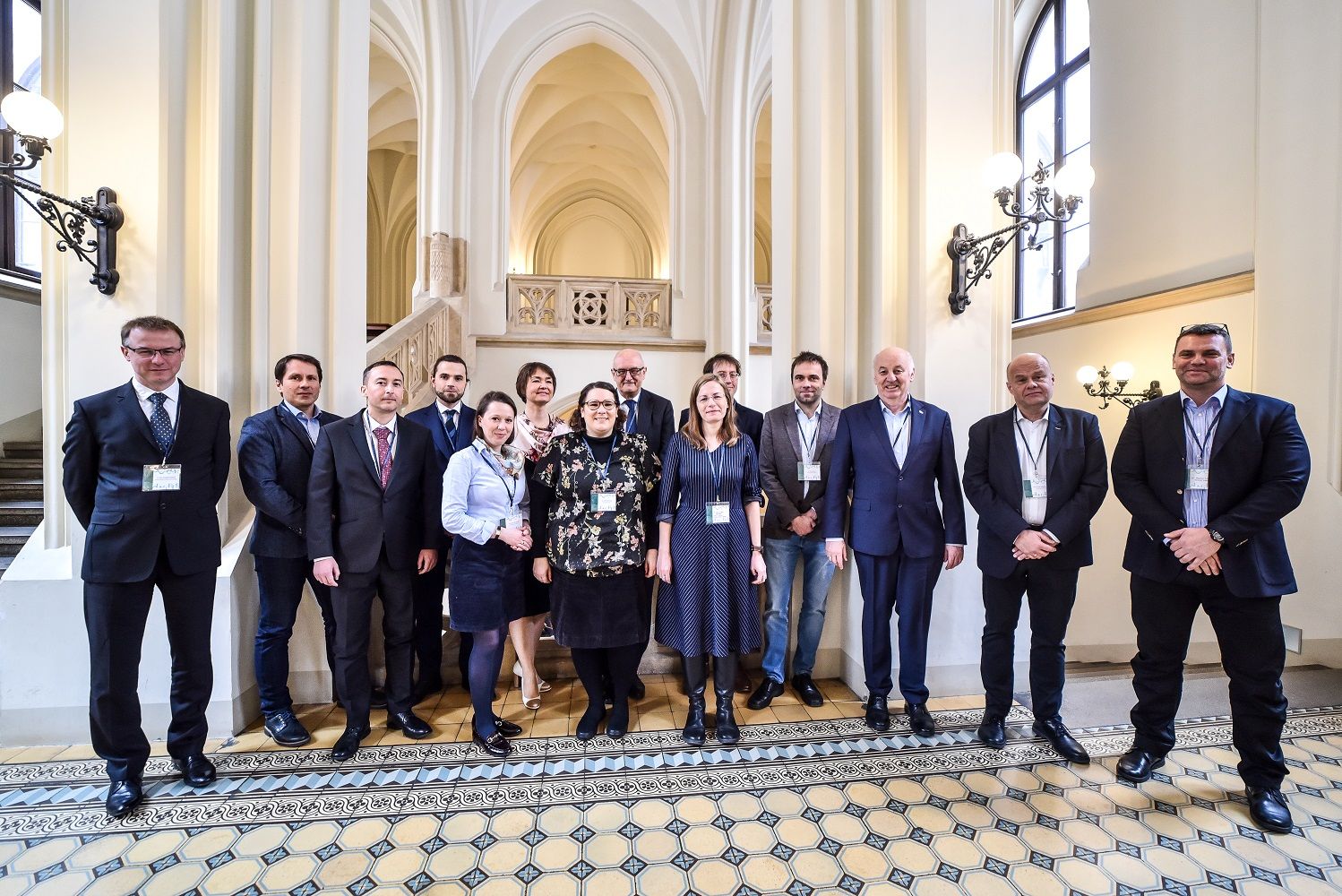Celebrating the launch of three Dioscuri Centres of Scientific Excellence at the Jagiellonian University, an inauguration ceremony was held at the Collegium Novum on March 28. The three Polish-born scientists, previously working in Germany, Switzerland and the US, are returning to Poland thanks to support from the Polish-German funding in the frame of the Dioscuri Programme.
Led by two life scientists and a mathematician, the new groups join five already established Dioscuri Centres conducting cutting-edge basic research at various Warsaw-based institutes.
The newly-established Dioscuri Centres:
- Dioscuri Centre for Structural Dynamics and Receptors led by Dr Przemysław Nogły,
- Dioscuri Centre for Modelling of Posttranslational Modifications led by Dr Mateusz Sikora,
- Dioscuri Centre in Random Walks in Geometry and Topology led by Dr Mikołaj Frączyk.
“These are exactly the kind of talents and research topics that we had in mind when launching the program here in Krakow back in 2017. We need to foster healthy brain circulation between all European countries if we want to create an attractive, united and successful European Research Area,” says Martin Stratmann, President of the Max Planck Society and initiator of the Dioscuri Programme. In a similar vein, Zbigniew Błocki, Director of the National Science Centre, which manages the program together with the German research organization, points out: “Our goal is a more balanced distribution of scientific excellence throughout Europe. We are grateful that the Max Planck Society as one of Europe’s leading research organizations supports Polish science in unlocking its full scientific potential.”
Around 100 guests from different scientific institutions gathered in the historic aula of Poland’s oldest university to join the festivities, which also featured a scientific lecture by Max Planck researcher Brenda Schulman. "For many years, the Jagiellonian University has been systematically improving the quality of research, especially promoting its interdisciplinary dimension and developing international cooperation. Thanks to these efforts, the university is becoming increasingly recognized in the global scientific community – the Dioscuri Centres will certainly add to its prestige." says Vice-Rector Piotr Kuśtrowski. Highlighting not only the international, but also the bilateral significance of the program, German Ambassador Thomas Bagger adds: “With Dioscuri, Poland and Germany have created something unique to strengthen scientific excellence in Poland and to counteract the brain drain from Central Europe in a novel bilateral framework. This is of utmost importance since only with highly qualified scientists we will be able to solve the challenges of the future – be they climate change, energy transformation or global health.”
 Launch of the Dioscuri Centres at the Jagiellonian University in Krakow, photo: Adam Koprowski, UJ
Launch of the Dioscuri Centres at the Jagiellonian University in Krakow, photo: Adam Koprowski, UJ
Mikołaj Frączyk, Przemysław Nogły and Mateusz Sikora are winners of the fourth international call for Dioscuri Centres published by the Max Planck Society and the National Science Centre Poland (NCN).
Background: The Dioscuri Programme
The Dioscuri Programme, which was initiated by the Max Planck Society, is jointly managed with the National Science Centre Poland (NCN) and aims to establish internationally competitive research groups in Central and Eastern Europe. Together with the five Dioscuri Centres established already in Warsaw, three Dioscuri Centres in Krakow have now been established.
Each of the Dioscuri Centres is financed with up to 1.5 million euros for a period of five years. The costs are shared equally between the German Federal Ministry of Education and Research (BMBF) and the Polish Ministry of Education and Science (MEiN), while the host institutions in Poland provide the necessary infrastructure. After its successful start in Poland, the program has recently been extended to the Czech Republic.
